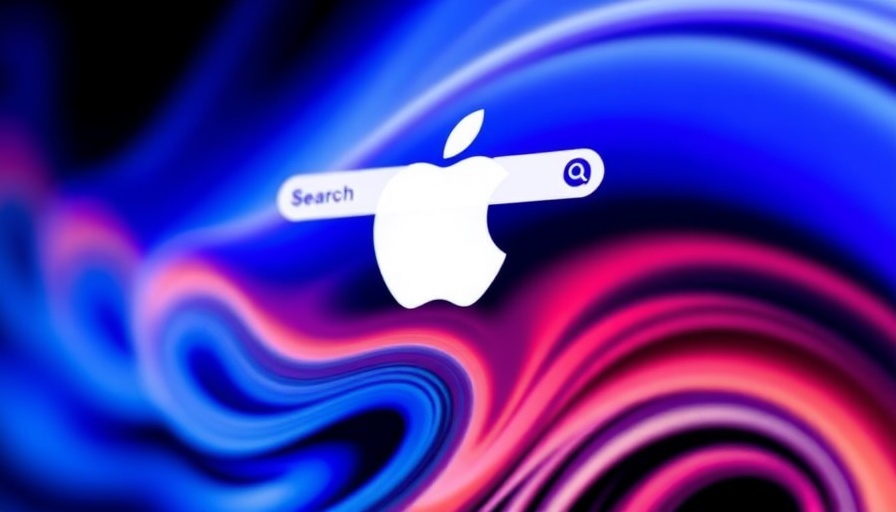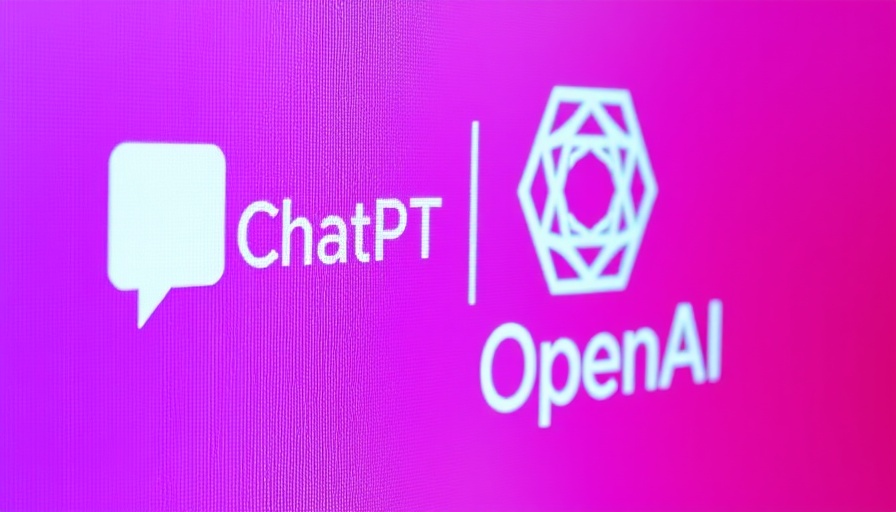
Apple's Entry into the AI Search Market: An Overview
As the race for AI supremacy intensifies, major players are positioning themselves to capitalize on the growing demand for AI-driven solutions. Apple, known for its innovative technology, is reportedly ramping up its efforts to introduce an AI search engine that could rival the likes of Gemini and ChatGPT. What does this mean for the future of search and, more importantly, for Apple’s standing in the tech landscape?
Rethinking the Search Experience with Apple's AI
According to a recent report by Bloomberg's Mark Gurman, Apple is assembling a specialized team—known as the Answers, Knowledge, and Information (AKI) team—to develop this new AI product. Unlike traditional search engines that simply deliver links, Apple’s approach aims to create an "answer engine" capable of providing direct responses to users' inquiries by leveraging extensive web resources. This pivot is a significant shift from Apple's historical reliance on partners like OpenAI for AI-generated content, particularly as it has never operated a search engine of its own in the traditional sense.
The Competitive Landscape: Can Apple Keep Up?
Recent studies, such as those from Pew Research Center, highlight a changing dynamic in search usage, where users inclined to use AI-generated summaries are refraining from clicking on traditional search results. In this context, Apple's potential AI search engine could present a unique opportunity for the company to differentiate itself within a crowded marketplace that includes established players like Google, Bing, and emerging contenders like Perplexity and Copilot.
Strategic Timing for a New Search Engine
The timing of Apple’s move is critical. With the U.S. Department of Justice actively pursuing antitrust cases against Google, this could create a shifting playing field in the search engine market. As users seek alternatives to Google’s entrenched dominance, Apple’s timing may align perfectly with market demands for innovative, efficient search solutions.
Integration with Apple's Ecosystem: A Unique Advantage
What sets Apple apart in this venture is the potential for seamless integration within its existing ecosystem. The forthcoming AI search could not only serve as a standalone application but also enhance features across various Apple platforms including Siri, Spotlight, and Safari. This native experience could attract users who prefer an integrated solution over fragmented third-party applications, thereby enhancing user loyalty and engagement.
Looking Ahead: What This Means for Businesses and Consumers
For CEOs and marketing professionals, Apple’s move into AI search could reshape strategies and consumer behaviors. As businesses anticipate shifts in user engagement driven by generative AI results, understanding these dynamics will be crucial. Companies may need to adapt their marketing approaches to align with how consumers interact with AI search engines, emphasizing the need for clear, actionable information that resonates within AI-generated content.
This evolution in search technology invites businesses to rethink how they present information online. The rise of AI-driven responses could necessitate a refined focus on quality content that captures interest quickly, as traditional scrolling through search results may wane in favor of direct answers from AI.
Ultimately, while Apple has a significant challenge ahead in establishing its AI search presence, the success of this endeavor will hinge on its ability to innovate and adapt within a rapidly changing landscape. The stakes could not be higher—both for Apple and the wider tech market.
 Add Row
Add Row  Add
Add 




Write A Comment